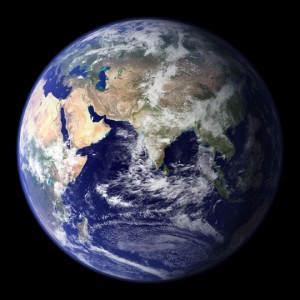No one can do everything,
but everyone can do something.
Keep hoping – hope is possible because:
God is with us – we are dealing with the power and love of the universe;
God is with us – on our side, desiring justice and health and fulfillment for us;
God is with us – all of us, all people and all other life-forms, but especially…
God is with those who do not have justice, health, and fulfillment. (Sallie McFague)
Keep learning – the more you learn, the stronger your voice will become:
Become more informed: read about science, ecology, social justice; watch documentaries. Read and hear the news, understand what’s happening in the world.
Keep seeking the abundant life:
Start with yourself – you can grow in discipleship:
What are your spiritual practices? What practice could deepen your faith and sense of hope?
What are your addictions? How could you break them, one at a time?
Where is your passion for social justice? What can you focus on?
What are your economic practices? Where can you be a voice, or an agent, for change?
What are your ecological practices? What practice can deepen awareness of the world’s needs?
Work with your faith community – you can be a voice for change:
Talk about what you care about. Pray for it. Ask others to join you in working for it.
Work with your local communities – you can make a difference:
Identify an issue you care about. Speak out, voice your convictions; write to local, state and national leaders. Join with others to make a difference.
St. Teresa’s Prayer
Christ has no body now but yours no hands, no feet on earth but yours
Yours are the eyes through which He looks with compassion on this world
yours are the feet with which He walks to do good
Yours are the hands, with which He blesses all the world
Yours are the hands, yours are the feet yours are the eyes You are His body
Christ has no body now but yours no hands, no feet on earth but yours
Yours are the eyes through which He looks with compassion on this world
Christ has no body now on earth but yours
(John Michael Talbot version)


Thank you Donna,
I read your last posting and began talking about digging a hole for my garbage when my Santa Fe friends suggested going to a nursery and buying compost starter which is an organic activator to break down the garbage.
Another topic to share during the wine course. Focus is the key word.
Having a wonderful time here. We went to St. Bede’s for their 8am. Organ playing, but no singing. The sermon could have come from Abundant Living.
In Hope, Elaine
I’m still thinking about these issues. The Paso Robles water/winery situation exemplifies the conflict of classic economics running afoul of resource depletion, combined with addiction to a mind-altering substance. When did wine grapes become the monocrop of agriculture? How does this serve the rest of us?
In a discussion lasts week on Bioneers, the speaker made the point that the obsession with Money has created disposable cities: As Detroit automakers relocated their factories to places where they could make more Money, abandoning the people and all the city’s infrastructure, a million people moved away. They left behind all the schools, hospitals, roads, other structures, and went to other cities, where the infrastructure needed to support them. In addition to the social costs of dislocation to the individuals involved, there are external costs to the public in building new infrastructure to serve them.
This is nuts.